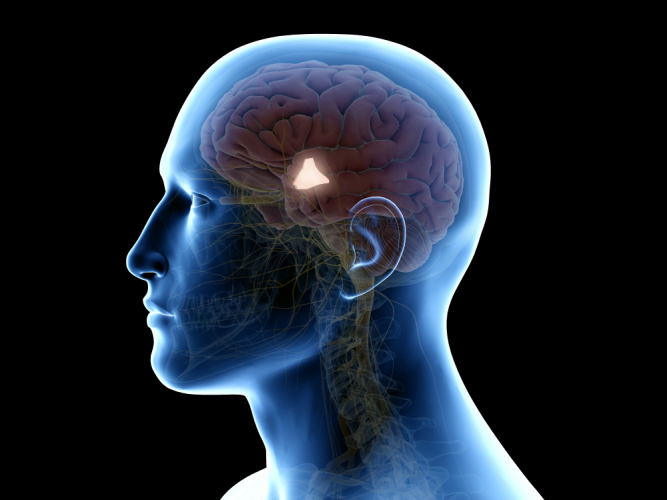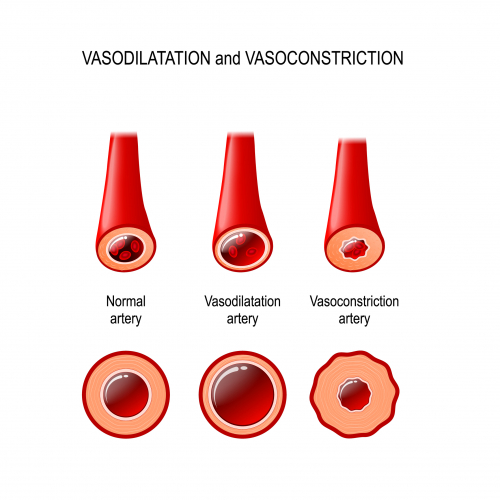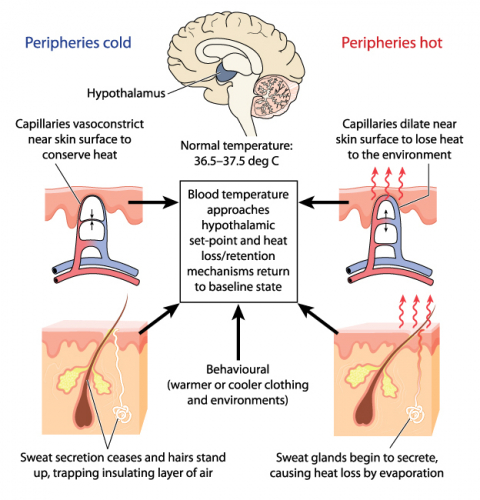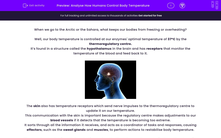When we go to the Arctic or the Sahara, what keeps our bodies from freezing or overheating?
Well, our body temperature is controlled at our enzymes' optimal temperature of 37°C by the thermoregulatory centre.
It’s found in a structure called the hypothalamus in the brain and has receptors that monitor the temperature of the blood and feed back to it.

The skin also has temperature receptors which send nerve impulses to the thermoregulatory centre to update it on our temperature.
This communication with the skin is important because the regulatory centre makes adjustments to our blood vessels if it detects that the temperature is becoming too extreme.
It sorts through all the information it receives, and acts as a coordinator of tasks and responses, causing effectors, such as the sweat glands and muscles, to perform actions to restabilise body temperature.
There are two mechanisms that our bodies use to adapt body temperature - one for the cold and one for heat - but both processes use energy transfers between the skin and the environment brought about by effectors.

If the temperature of our blood gets too hot, our skin receptors detect the change and send signals to the thermoregulatory centre, which triggers the effectors.
They make our blood vessels dilate, or widen, using their muscular walls - this is called vasodilation. It means that more blood passes closer to the skin and so more heat is lost.
Also, the sweat glands produce sweat that evaporates off our skin and takes heat with it into the environment.

When we get too cold:
Vasoconstriction occurs, which is the blood vessels narrowing, or constricting, meaning that less blood goes near the skin and so less heat is lost.
Alongside this, we stop making sweat to conserve thermal energy.
We also start to shiver as our skeletal muscles (such as arms and legs) start to contract and relax rapidly to create heat.
The final thing is that hair muscles contract to make our hair stand on end, trapping a layer of air close to the skin to insulate us.
Let's summarise all we've learnt about body temperature regulation:

Are you ready to have a go at some questions now?







